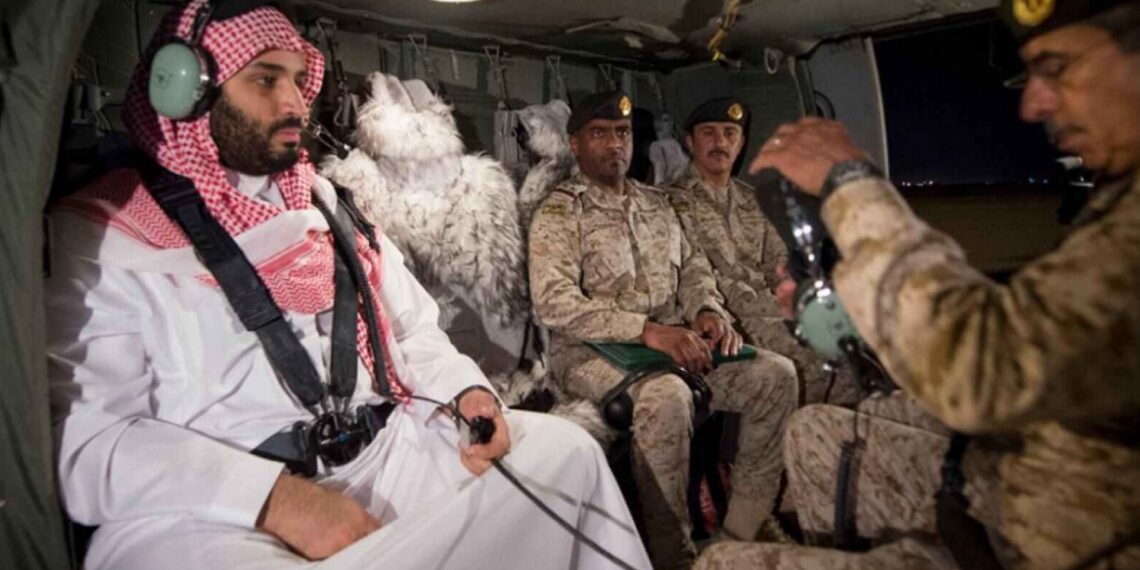
The Saudi National Assembly Party held Crown Prince Mohammed bin Salman the political and moral responsibility for implicating the Kingdom in the Yemen war and its repercussions.
In a press release the Saudi Leaks received a copy of, the party condemned the repeated attacks on the Kingdom that target civilians and vital installations.
It considered the attacks against the kingdom “a brutal attack that must be condemned and rejected.”
The National Assembly Party said that it rejects targeting civilians in fraternal Yemen, stressing that this war has proven all parties’ involvement in multiple violations and crimes.
The party pointed out that this war distanced Yemen from its dream of achieving justice and peace in the country and caused huge losses to the two peoples.
The party added that targeting civilians practised by the Al Saud authorities in Yemen does not justify similar aggression against our people and our land. The people and their individuals are not partners in the war decision.
The National Assembly Party held the government, specifically the current crown prince, political and moral responsibility for Saudi Arabia’s involvement in the Yemen war.
He said that this war “implicated our people, our national institutions, and our army in a war that consumed everything and caused the biggest humanitarian disaster in the world.”
The National Assembly Party renewed its call to stop the war, take the diplomatic path, support and help the Yemenis stop the conflict and resolve differences across the dialogue table and election without foreign interference.
Observers agree that the ongoing war in Yemen for the sixth year consecrated Crown Prince Mohammed bin Salman’s failure to lead and showed the Kingdom’s need for external protection.
Moroccan writer Hussein Majdoubi said that this war, which is about to end due to President Joe Biden’s efforts, some lessons must be learnt.
Majdoubi mentioned that he highlighted these lessons: How Saudi Arabia, which has a huge military budget, failed to win or to protect its Kingdom.
The Yemen war broke out nearly six years ago under the slogan “Decisive Storm,” and it drew a declared goal.
It is the containment of the Iranian tide towards Yemen by restoring President Abd Rabbu Mansour Hadi, who is supposed to have been officially elected to “restore legitimacy.”
Meanwhile, bin Salman employed this war to present himself as the Sunnis’ regional leader and leader.
This made him insist on the participation of Sunni countries such as the UAE, Bahrain, Morocco, Jordan, Egypt and Qatar, which have gradually withdrawn.
After six years of war, the results were very counterproductive. They placed Saudi Arabia in an embarrassing position in front of the international community that attacked its southern neighbour.
Saudi Arabia has a huge military budget estimated at $70 billion annually in 2019.
It comes third in the global rankings after the United States and China and surpasses countries such as Russia, India, France and Britain.
It is the world’s highest budget compared to the country’s general national income, between 9 to 10 per cent, while countries such as France allocate less than 2 per cent.
This budget is sufficient to make it real military power in the Middle East, parallel to Turkey, Iran and Israel.
But this war revealed the falsehood of this budget, and indeed that it is a paradox in military history for two reasons:
The first is that the entire Saudi military hardware is minimal and does not definitively reflect the $ 70 billion budget.
The Kingdom has dozens of F-15 aircraft, lacks an anti-aircraft and anti-aircraft air system and lacks sufficient ammunition.
In practice, the war revealed how Saudi Arabia is suffering from obtaining ammunition after the European veto on ammunition, and currently the American.